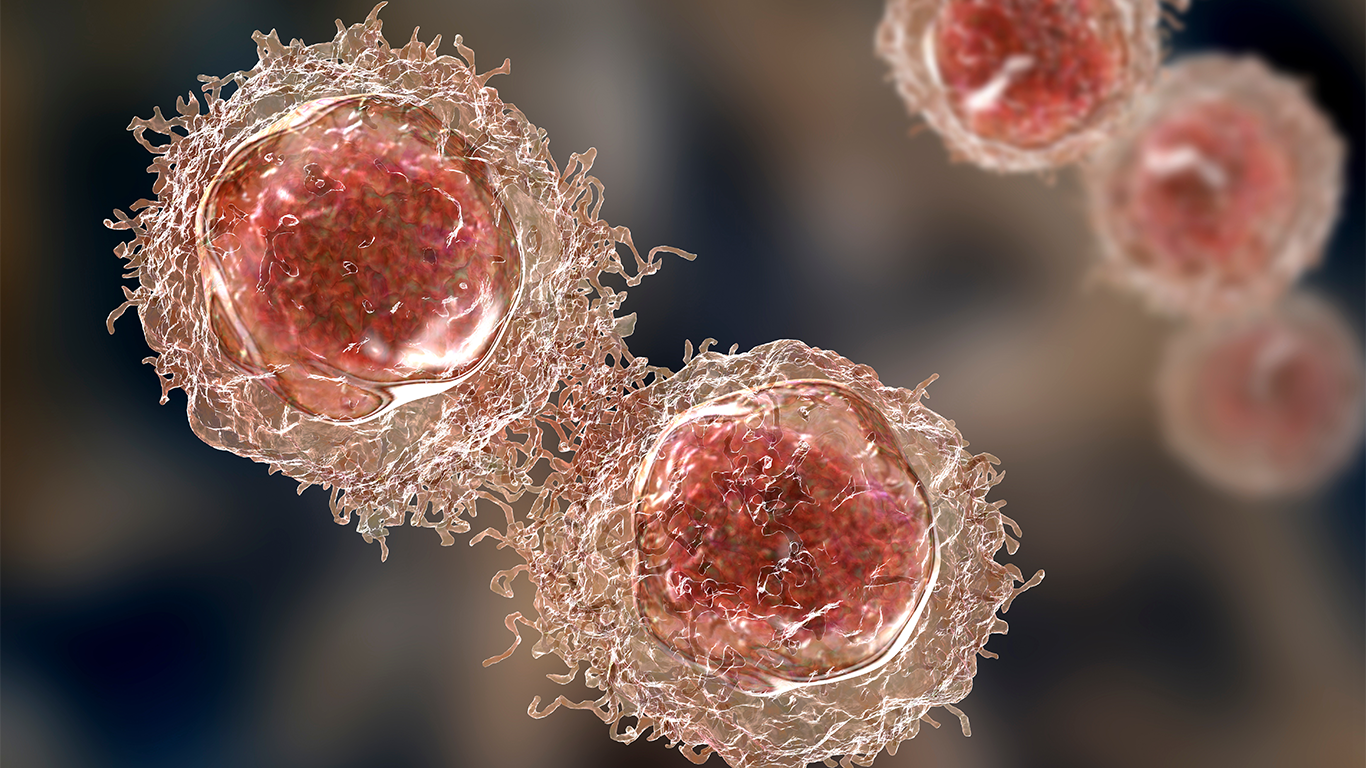By: Kerri Fitzgerald
A phase 2 study found that eprenetapopt plus azacitidine induced responses in patients with TP53-mutated myelodysplastic syndromes (MDS) and acute myeloid leukemia (AML). This combination may be an opportune bridge to transplantation, according to David A. Sallman, MD, of the Moffitt Cancer Center in Tampa, Florida, and colleagues, who published the findings in HemaSphere.
Eprenetapopt is a novel, first-in-class small molecule that “reactivates p53 and targets cellular redox balance, ultimately inducing apoptosis and ferroptosis in TP53[-mutated] cancer cells,” the authors explain.
The multicenter, international study was conducted as a collaboration between the U.S. MDS Clinical Research Consortium and the Groupe Francophone des Myelodysplasies. The study included 100 patients (median age, 68 years) who had not received hypomethylating agents and were classified as higher risk per the International Prognostic Scoring System; most (74%) had MDS.
Patients received eprenetapopt 4,500 mg intravenously on days one through four and azacitidine 75 mg/m2 subcutaneously or intravenously every seven days in 28-day cycles.
The researchers reported “no unique safety signals.” The most common adverse events were gastrointestinal, predominantly nausea/vomiting, and neurologic and mostly occurred in early treatment cycles. Febrile neutropenia occurred in more than a third (37%) of patients, and early mortality was low (1% at 30 days and 7% at 60 days).
The overall response rate was 69%, including 41% experiencing complete remission (CR). The median duration of CR was 10.2 months. After a median follow-up of 52 months, median overall survival (OS) was 11.8 months (95% CI, 9.4-14.3).
Allogeneic hematopoietic cell transplantation (alloHCT) was “borderline predictive” of OS overall (14.7 vs 14.4 months; P=0.046). AlloHCT resulted in significant OS improvements based on CR/TP53 next-generation sequencing negativity (P=0.00085; two-year OS, 54%).
“Patients with TP53[-mutated] MDS/AML represent a molecular cohort with inferior outcomes to all standard of care therapies and thus urgently need novel therapeutic strategies that both deepen remission, limit overall toxicity, and extend life,” the authors noted.
“Eprenetapopt [plus azacitidine] led to a high CR rate across two parallel international cohorts of TP53-mutated MDS patients with particularly favorable outcomes for patients bridged to alloHCT,” they concluded.
The study was supported by Aprea Therapeutics.
Reference
Sallman DA, Komrokji RS, Dezern AE, et al. Long-term follow-up and combined phase 2 results of eprenetapopt and azacitidine in patients with TP53 mutant MDS/AML. Hemasphere. 2025;9(7):e70164. doi:10.1002/hem3.70164







